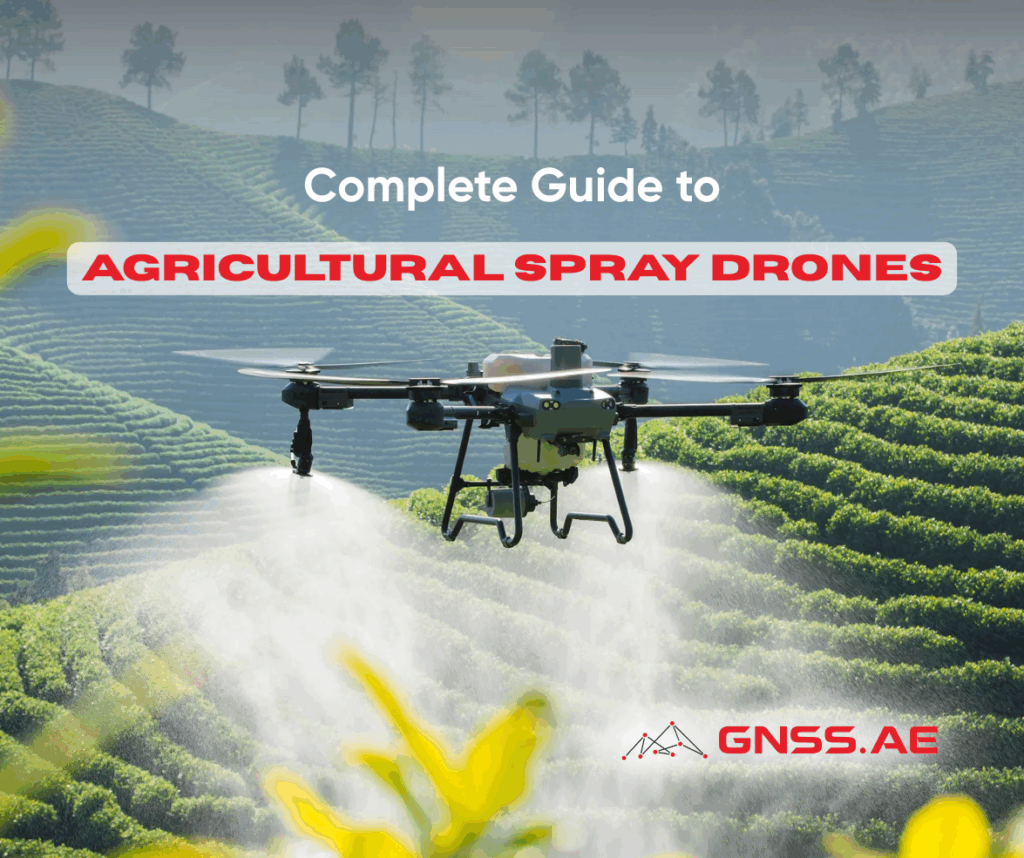
Agricultural spray drones are transforming modern farming by offering farmers an innovative and efficient method for applying pesticides, fertilizers, and other essential chemicals to their crops. This comprehensive guide covers everything you need to know about spray drones, from basic functionality to selection criteria and top models available today.
Agricultural spray drones, commonly referred to as crop sprayer drones or agricultural UAVs, are specialized unmanned aerial vehicles engineered specifically for crop spraying applications. These sophisticated machines combine cutting-edge technology with precision spray equipment to deliver pesticides, herbicides, and other agricultural chemicals with exceptional accuracy and efficiency.
Understanding the core components of spray drones is fundamental to appreciating their capabilities:
| Component | Capability |
|---|---|
| Flight Controller | Serves as the drone’s central processing unit, managing flight paths and maintaining stability throughout operations |
| Spray System | Encompasses the chemical storage tanks, pressurization pumps, and precision nozzles that work together to deliver controlled chemical application |
| GPS Navigation System | Provides precise positioning capabilities, enabling drones to follow predetermined flight patterns and ensure uniform chemical distribution across crop areas |
| Advanced Sensors and Cameras | Integrated into select models to monitor crop health conditions, identify pest infestations, and collect valuable agricultural data for farmers |
Spray drones deliver unprecedented levels of efficiency and precision in agricultural operations. Farmers utilizing drone technology for crop spraying experience dramatic reductions in time and labor requirements compared to traditional manual methods. The combination of autonomous flight systems and GPS navigation ensures consistent spray patterns and accurate chemical placement, ultimately saving time while improving application effectiveness for superior crop yields.
Compared to conventional spraying techniques, spray drones demonstrate significant environmental benefits. Their precise application capabilities minimize chemical overspray and drift, substantially reducing risks of contamination to nearby water sources and non-target vegetation. These drones can also access challenging terrain that traditional equipment cannot reach, preventing harmful soil compaction and minimizing crop damage during application.
Although spray drones require substantial initial investment, they deliver impressive cost-effectiveness over time. Farmers can optimize chemical usage through precise application, reducing waste and lowering overall operational costs. The time efficiency gained from drone operations allows farmers to allocate resources to other critical tasks, enhancing labor productivity and operational effectiveness.

Choosing the appropriate spray drone requires thorough evaluation of several important factors. Farmers must first assess their specific operational requirements, including field dimensions, crop varieties, and spraying frequency needs. Additional considerations include drone flight duration, tank capacity, and compatibility with various chemical formulations. It’s also essential to research manufacturer reputation, available customer support, and spare parts accessibility.
The agricultural drone market features several outstanding options, with the DJI Agras T50 and DJI Agras T25 representing the latest innovations in spray drone technology. Both models offer distinctive features designed to meet diverse agricultural requirements.
The DJI Agras T50 represents a premium solution for comprehensive agricultural drone operations. This robust aircraft features a powerful coaxial twin-rotor propulsion system combined with a split-type torque-resistant structure, delivering exceptional stability while handling payload capacities of up to 40 kg for spraying applications or 50 kg for spreading operations.
Key features include a sophisticated Dual Atomizing Spraying System, advanced Front and Rear Phased Array Radars, and an integrated Binocular Vision System. The T50 excels across multiple agricultural scenarios, from field surveying to precision spraying and spreading applications. Performance specifications include impressive flow rates reaching 16 liters per minute for spraying operations and up to 108 kilograms per minute for spreading tasks.
DJI Agras T50 accommodates both fully automatic and manual operation modes, incorporates a specialized Orchard Mode for fruit tree applications, and features Variable Rate Application technology for optimal resource utilization.
The DJI Agras T25 is engineered for portability and ease of use, designed for single-person operation while maintaining versatility across various agricultural applications. This compact drone features a lightweight, foldable design that reduces overall dimensions by 21% compared to previous models, significantly improving transportability and operational convenience.
DJI Agras T25 incorporates a Dual Atomizing Spraying System capable of flow rates up to 16 L/min, producing consistent, fine spray droplets without leakage issues. Advanced safety and sensing capabilities include front and rear Active Phased Array Radars plus dual Binocular Vision sensor sets, ensuring precise terrain mapping and reliable obstacle detection.
This versatile platform integrates aerial surveying, spraying, and spreading functions into a single unit, capturing real-time imagery and generating high-definition field maps for automated flight route planning.
Spray drones represent a significant advancement in agricultural technology, offering farmers powerful tools to improve efficiency, reduce environmental impact, and optimize operational costs. Whether you’re an experienced agricultural professional seeking to modernize your operations or new to farming technology, understanding these innovative systems will help you make informed decisions about incorporating drone technology into your agricultural practices.
At GNSS.ae, we specialize in providing cutting-edge drone solutions to help professionals, including farmers, embrace this transformative technology. Our expertise in drone systems ensures that you receive the right equipment and support to maximize productivity and efficiency for your operations.